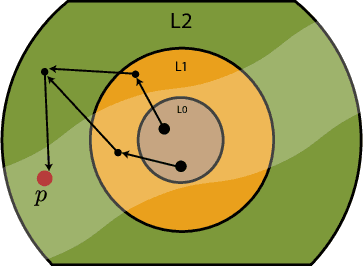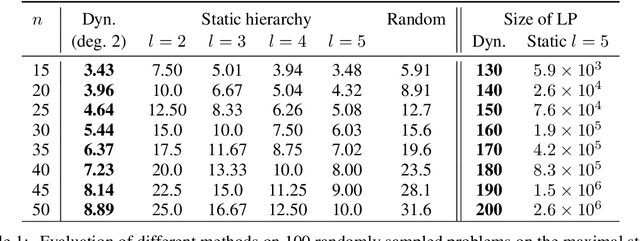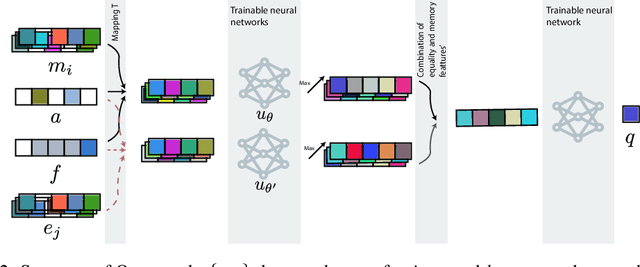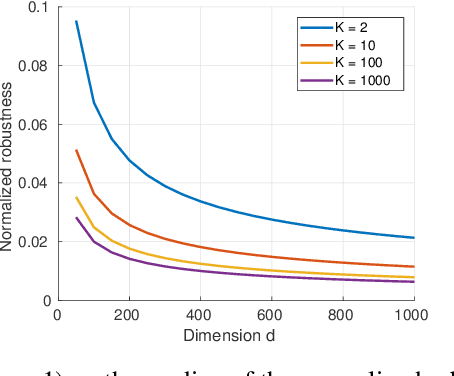Hamza Fawzi
Convergence of linear programming hierarchies for Gibbs states of spin systems
Jun 06, 2025Abstract:We consider the problem of computing expectation values of local functions under the Gibbs distribution of a spin system. In particular, we study two families of linear programming hierarchies for this problem. The first hierarchy imposes local spin flip equalities and has been considered in the bootstrap literature in high energy physics. For this hierarchy, we prove fast convergence under a spatial mixing (decay of correlations) condition. This condition is satisfied for example above the critical temperature for Ising models on a $d$-dimensional grid. The second hierarchy is based on a Markov chain having the Gibbs state as a fixed point and has been studied in the optimization literature and more recently in the bootstrap literature. For this hierarchy, we prove fast convergence provided the Markov chain mixes rapidly. Both hierarchies lead to an $\varepsilon$-approximation for local expectation values using a linear program of size quasi-polynomial in $n/\varepsilon$, where $n$ is the total number of sites, provided the interactions can be embedded in a $d$-dimensional grid with constant $d$. Compared to standard Monte Carlo methods, an advantage of this approach is that it always (i.e., for any system) outputs rigorous upper and lower bounds on the expectation value of interest, without needing an a priori analysis of the convergence speed.
Learning dynamic polynomial proofs
Jun 04, 2019



Abstract:Polynomial inequalities lie at the heart of many mathematical disciplines. In this paper, we consider the fundamental computational task of automatically searching for proofs of polynomial inequalities. We adopt the framework of semi-algebraic proof systems that manipulate polynomial inequalities via elementary inference rules that infer new inequalities from the premises. These proof systems are known to be very powerful, but searching for proofs remains a major difficulty. In this work, we introduce a machine learning based method to search for a dynamic proof within these proof systems. We propose a deep reinforcement learning framework that learns an embedding of the polynomials and guides the choice of inference rules, taking the inherent symmetries of the problem as an inductive bias. We compare our approach with powerful and widely-studied linear programming hierarchies based on static proof systems, and show that our method reduces the size of the linear program by several orders of magnitude while also improving performance. These results hence pave the way towards augmenting powerful and well-studied semi-algebraic proof systems with machine learning guiding strategies for enhancing the expressivity of such proof systems.
Adversarial vulnerability for any classifier
Feb 23, 2018



Abstract:Despite achieving impressive and often superhuman performance on multiple benchmarks, state-of-the-art deep networks remain highly vulnerable to perturbations: adding small, imperceptible, adversarial perturbations can lead to very high error rates. Provided the data distribution is defined using a generative model mapping latent vectors to datapoints in the distribution, we prove that no classifier can be robust to adversarial perturbations when the latent space is sufficiently large and the generative model sufficiently smooth. Under the same conditions, we prove the existence of adversarial perturbations that transfer well across different models with small risk. We conclude the paper with experiments validating the theoretical bounds.
 Add to Chrome
Add to Chrome Add to Firefox
Add to Firefox Add to Edge
Add to Edge